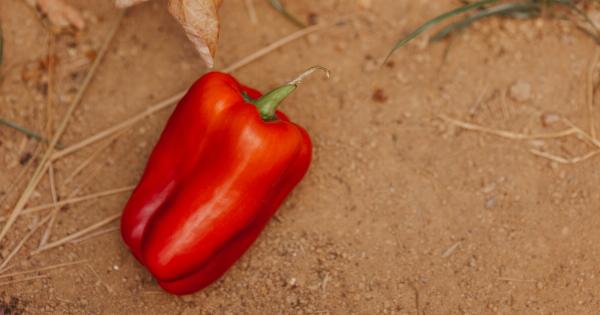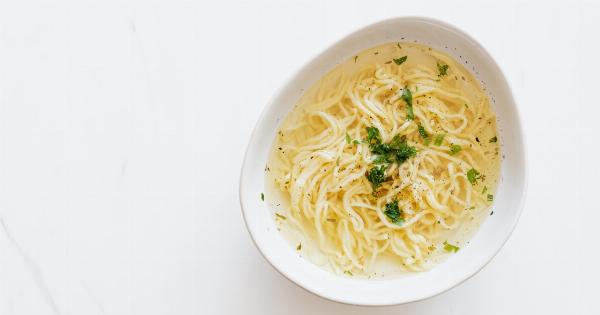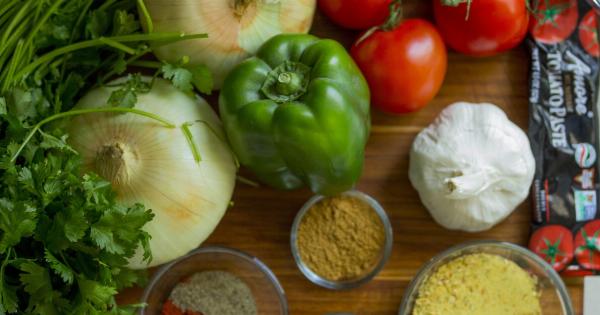Lycopene is a carotenoid found in bright red fruits and vegetables such as tomatoes, watermelon, pink grapefruit, and guava.
This powerful antioxidant is known for its ability to counteract the harmful effects of free radicals and reduce the risk of chronic diseases, including cancer. In this article, we’ll explore the anti-cancer properties of lycopene-rich foods and how you can incorporate them into your diet.
1. Tomatoes
Tomatoes are a rich source of lycopene and other beneficial nutrients such as vitamins A and C, potassium, and folate.
Studies have shown that regular consumption of tomatoes and tomato-based products can reduce the risk of several types of cancer, including prostate cancer, breast cancer, lung cancer, and stomach cancer.
One study published in the Journal of Nutrition found that women who consumed tomato products at least seven times per week had a 29% lower risk of developing breast cancer compared to those who consumed them less than twice a week.
Another study published in the Journal of the National Cancer Institute found that men who consumed two or more servings of tomato sauce per week had a 23% lower risk of developing prostate cancer compared to those who consumed it less than once a month.
2. Watermelon
Watermelon is another excellent source of lycopene, as well as vitamins A and C, potassium, and magnesium. The high water content of watermelon can also help keep you hydrated during hot summer months.
Studies have shown that lycopene from watermelon may help reduce the risk of several types of cancer, including breast cancer, prostate cancer, and lung cancer.
One study published in the Journal of Agricultural and Food Chemistry found that lycopene from watermelon was able to reduce the growth of breast cancer cells in vitro.
Another study published in the Journal of Nutrition and Cancer found that men who consumed watermelon juice had higher levels of lycopene in their blood and lower levels of a prostate cancer marker compared to those who consumed a placebo juice.
3. Pink grapefruit
Pink grapefruit is another delicious and nutritious source of lycopene, as well as vitamin C and fiber. Like other lycopene-rich foods, regular consumption of pink grapefruit has been shown to reduce the risk of several types of cancer.
One study published in the Journal of Agricultural and Food Chemistry found that lycopene from pink grapefruit was able to reduce the growth of lung cancer cells in vitro.
Another study published in the Journal of Nutritional Biochemistry found that lycopene from pink grapefruit was able to decrease the expression of a gene linked to breast cancer growth in rats.
While more research is needed to confirm these findings in humans, incorporating pink grapefruit into your diet can be a tasty way to boost your lycopene intake and potentially reduce your cancer risk.
4. Guava
Guava is a tropical fruit that is rich in lycopene, as well as vitamin C, fiber, and potassium. Studies have shown that lycopene from guava may help reduce the risk of several types of cancer, including breast cancer, prostate cancer, and lung cancer.
One study published in the Journal of Agricultural and Food Chemistry found that lycopene from guava was able to induce cell death in breast cancer cells in vitro.
Another study published in the Journal of Nutritional Science and Vitaminology found that lycopene from guava was able to reduce the growth of prostate cancer cells in vitro.
5. Other lycopene-rich foods
In addition to tomatoes, watermelon, pink grapefruit, and guava, there are many other lycopene-rich foods that can help reduce the risk of cancer. These include:.
- Papaya
- Mango
- Apricots
- Purple cabbage
- Red bell peppers
- Asparagus
By incorporating a variety of these lycopene-rich foods into your diet, you can boost your antioxidant intake and potentially reduce your risk of developing cancer.
How to incorporate lycopene-rich foods into your diet
One of the easiest ways to incorporate lycopene-rich foods into your diet is by simply adding them to your meals. Here are some tips:.
- Add diced tomatoes to soups, stews, and sauces
- Make a colorful salad with watermelon, pink grapefruit, and other fruits and vegetables
- Try grilling or roasting asparagus or red bell peppers
- Make a smoothie with watermelon, strawberries, and other fruits
- Slice mango or papaya and serve as a snack or dessert
By being creative in the kitchen and incorporating a variety of lycopene-rich foods into your meals, you can enjoy their delicious taste and potentially reap their anti-cancer benefits.































